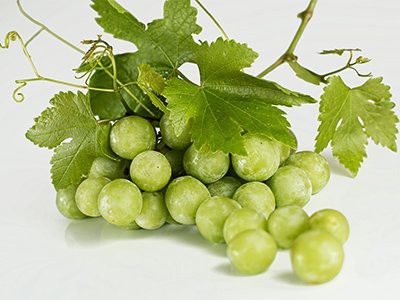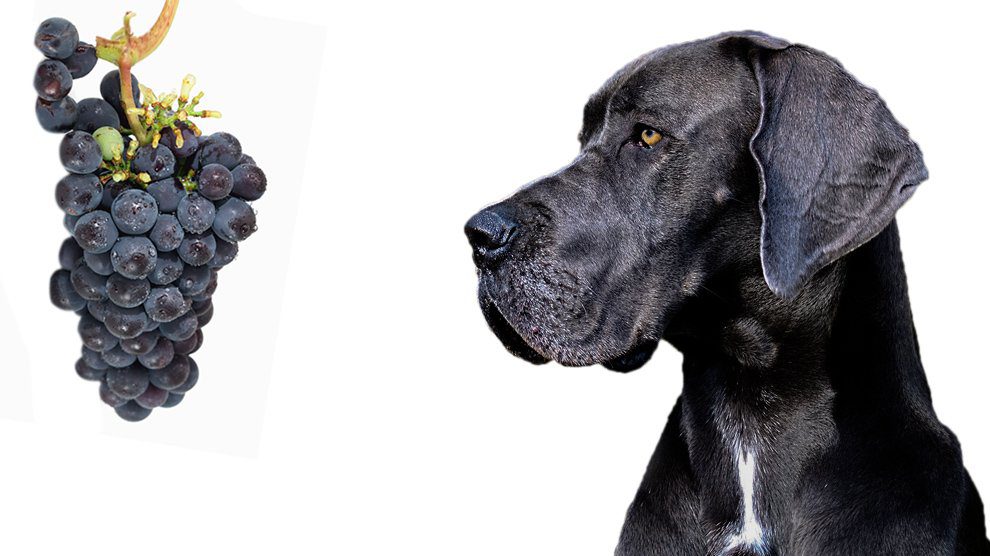Dog Pregnancy Calculator And Timeline
Can Dogs Eat Grapes? The answer is No and it’s the disturbing truth. Ingestion of even one or two grapes will be harmful and cause serious illness in canines.
Grapes are highly toxic in nature and they can cause severe reactions in canines. Grape toxicity can even be fatal to your dog.
Ingesting the fruit will potentially lead to acute kidney failure in dogs. According to the ASPCA Animal Poison Control Center, they received a total of 3,722 calls regarding grape toxicity in 2016.
Gender, breed, or age of a dog has no influence on the risk of being affected. There is also no proven amount of grapes that is safe. So, it is not advisable to feed your dog with grapes.
But, dog owners should know why grapes are bad for dogs and the signs of grape toxicity. In addition, they must also knowhow to treat grape toxicity in their dogs and the ways to prevent it.
In this article, you can also explore the alternatives to grapes for your pup.
Can Dogs Have Grapes?
No.Dogs shouldn’t eat grapes.
Grapes aren’t safe for dogs in any amount. This fruit has the potential to cause serious harm to your pooch. Ingesting grapes can cause sudden kidney failure in dogs and can be fatal to them.
It can affect dogs in a different manner. A large number of grapes may not cause any significant effect in a few dogs. But, a small number of grapes can produce an adverse reaction in other dogs.
Therefore, grapes aren’t the recommended fruit for dogs.
Why Can't Dogs Eat Grapes?
Grape toxicity is dangerous in dogs as it can lead to the rapid onset of kidney failure in them. Consumption of even a small number of grapes will result in acute kidney failure within a short period of time.
The damage caused on the kidneys will also result in anuria or cessation of urine production in dogs. And, grape toxicity in dogs is not limited to specific breeds. The toxic effect of grapes can occur in any dog breed, gender, and age.
As many unknown variables concerning grape toxicity in dogs exist, it is essential that you monitor your dog closely. Also, ensure that your dog won’t have access to grapes at any time.
For your pet’s safety, please keep the grapes out of your dog’s reach.
How Many Grapes Can Dogs Eat?
To determine the number of grapes to be fed to dogs, dog owners should know how much grapes are toxic to a dog.
Generally, even one or two grapes are toxic to a 10-pound dog. The following dosage of grapes can be dangerous.
- 10-pound dog – 0.7 ounces
- 20-pound dog – 4 ounces
- 30-pound dog – 2.1 ounces
- 40-pound or heavier dog – 8 ounces
But, the specific information regarding the fatal dosage of grapes is dependent on the individual dog and its sensitivity to grapes.
In addition, the exact cause of grape toxicity is still unknown. Also, the exact substance in grapes that causes harm in dogs has not been discovered yet.
So, it is recommended to follow the general rule of thumb. Grapes used as treats shouldn’t comprise more than 5 percent of your dog’s total calories for the day.
What Happens If A Dog Eats Grapes?
Grapes can be poisonous to your dog even it ingests them in a small amount. So, dog owners should know the common symptoms of grape toxicity in dogs.
Common Symptoms of Grape Toxicity
If you suspect that your dog has eaten a grape, you can expect the following most common symptoms:
- Abdominal pain
- Dehydration (includes panting and dry mouth)
- Diarrhea
- Depression
- Hyperactivity
- Lethargy (weakness, fatigue)
- Loss of appetite
- Vomiting, usually a few hours after ingesting a grape or raisin
But, the toxic effects of grapes in dogs can be divided into short term and long term. In the short term, the most obvious symptoms of grape toxicity in dogs are abdominal pain, vomiting, and diarrhea.
These signs usually develop within just 6 hours of eating the grapes. These short term symptoms will be often accompanied by lethargy and loss of appetite in dogs.
In the time being, your dog may develop the symptoms of renal failure such as
- Drinking more water than usual
- Passing bigger puddles
- Incessant vomiting
- Dehydration
These signs will develop as soon as 24 hours after the dog ingests grapes. The worse sign of kidney failure in dogs is that they will drink a lot of water but won’t pass urine.
These symptoms will clearly indicate that your dog’s kidneys are badly damaged. Therefore, it is essential to monitor the symptoms of grape toxicity in dogs. Also if your dog is left untreated, it may collapse and bite the dust within a few days to weeks.
So, if you suspect that your dog has been affected by the grape toxicity, speak with a veterinarian as soon as possible to administer the right diagnosis and treatment to save your dog.
Treatment For Grapes Poisoning In Dogs
Poisoning caused by grapes can be fatal to your dog. So, if your dog eats a grape, consult with your veterinarian. He will provide further direction to treat the toxicity in your dog.
The vet may recommend to either induce vomiting in dogs or may ask you to bring your dog to the clinic. In case, if you are 100% sure that your dog consumed raisins or grapes, you must induce vomiting.
However, avoid inducing vomiting if
- You aren’t sure whether your dog has eaten grapes
- Your dog showing signs of shock and distress
- You can see your dog exhibiting signs of breathlessness
- The pooch is unconscious for a long time
But, it is not advisable to induce vomiting or administer other treatments unnecessarily in your dog.

Inducing vomiting in Dogs
If the vet asks you to induce vomiting in your dog that ingests grapes, you can do it in the following ways.
- If your dog has not consumed any food for the last couple of hours, feed him. It will force the dog to vomit.
- Measure hydrogen peroxide(1 ml) with a teaspoon or using a syringe. Do not cross 45 ml (hydrogen peroxide) at any cost irrespective of your dog’s weight. Insert the chemical into the dog’s mouth.
- Vomiting will usually happen within the first 15 minutes after administration. But, try using this method not more than two times at 15 minutes interval in-between.
- Further treatment often involves using activated charcoal in order to absorb the rest of the toxins present inside your dog’s digestive system.
Finally, never hesitate to contact your vet if you feel that professional assistance is needed. The vet will treat your dog in the following ways.
If the grape ingestion in your dog is within 2 hours, vomiting is usually induced by the veterinary staff. In addition, they will
- Administer activated charcoal in your dog
- Provide intravenous fluids to your dog for 48 hours
- Check blood chemistry panels for 72 hours
- Advise you to take urinalysis, kidney medications, or an ultrasound to examine the kidney size and look for mineral deposits.
But, the safest way to treat your dog in case of grape ingestion is to contact either your veterinarian or the Animal Poison Control Center at (888) 426-4435 as soon as possible.
How To Prevent Grape Toxicity In A Dog?
Preventing your dog from grape toxicity is the best thing instead of exposing your dog to grapes. The following are a couple of ways to prevent your dog from grape ingestion.
1. Keep grapes away from your dog’s reach
It’s a good idea to keep the grapes in containers and make sure that you place them away from your dog’s reach. Doing this way won’t provide a chance for your dog to have accidental ingestion of grape.
2. Do not offer grapes or raisins
You need to hold yourself from offering too many grapes or raisins, how much ever your dog likes them. Also, make sure that your dog won’t get accustomed to eating grapes or raisins.
3. Read labels for ingredients in fruit treats that are not designed for dogs
We tend to feed our dogs human foods and treats that aren’t specifically designed for them now and again.
However, it is important to read the labels for ingredients first before buying them for your dog. Ensure they do not include grapes or other substances that can cause toxicity to your dog.
4. Talk to your children
Make sure that your children understand why they shouldn’t feed grapes to your dog. Also, ask them to avoid dropping grapes off the floor.
5. Consider alternatives to grapes
There is plenty of alternative fruits to grapes available for your dog. You can consider feeding apples, blueberries, watermelon, pineapple, and even bananas to your dog.
Your dog will love to eat them and they are nutritious for your pooch as well.
Are dried grapes good for dogs?
No, raisins are not safe for dogs in any amount. The exact substance that causes toxicity in dogs after ingestion of them is not known.
Even small amounts can be fatal to dogs and severe reactions may occur in some dogs. Dogs of any age, breed, or gender can be affected by raisins.
Without immediate and intensive treatment, dried grapes can cause serious health issues in dogs. Although some dogs managed to survive after ingesting raisins in large amounts, they are considered highly toxic for dogs.
So, raisins aren’t good for dogs.
Can Dogs Eat Grapes? - FAQs
1. Can French Bulldogs Eat Grapes?
No, Frenchies shouldn’t eat grapes. It is not advisable to feed grapes to French bulldogs due to their toxicity.
Feeding grapes to this breed can cause liver failure in them. Even, small amounts of grape can lead to permanent kidney damage in these dogs. And, this applies to all types of grapes (e.g.black, dried, green, peeled, or red grapes).
2. Can Dogs Eat Grape Jelly?
No. Dogs shouldn’t have grape jelly.
The sugar levels in grape jelly will be too high for your dog and it will lead to diabetes in them. Even a teaspoon of grape jelly is much more for your pooch.
In addition, grape jelly is a double no for dogs because of the main ingredient grapes in it. As grapes are toxic to dogs and too many can lead to kidney failure, it isn’t worth taking the risk of feeding grape jelly to your dog.
3. But, Can Dogs Eat Green Grapes Instead?
No. Dogs shouldn’t eat them.
Green grapes are the common variety of grapes found in the market. But, they are harmful to your pooch within mere hours after your dog ingests them.
You can also observe that your dog may vomit and pass excess urination after consuming these grapes. So, don’t feed green grapes to your dog.
4. Can Dogs Eat Muscadine Grapes?
Muscadines belong to the same family of grapes and are toxic to dogs. They will cause acute renal failure (kidney failure) in dogs if given in more quantities.
Also, it is not known exactly what substance in the grapes causes toxicity to your dog. So, it’s better not to let your dog eat any kind of grapes, including muscadines.
5. Is Grape Flesh Good For Dogs?
No. Many dog owners believe that the flesh of grapes is safe for their dogs to consume. But, this is simply not true.
You should avoid feeding any part of the grape to your dog, including the flesh.


















